(Weight)’s: Heavyweight Height:5 ft 10 (178cm) Reach:70in(178cm) Stance: Orthodox Boxing Record:52-4-2(43KO)
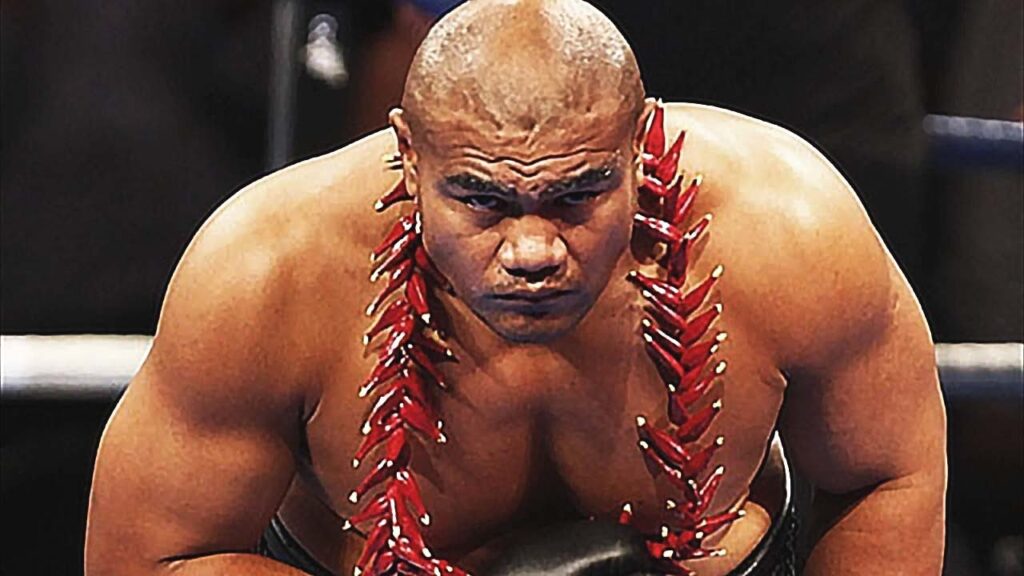
David Tua: The Powerhouse of Boxing
The Rise of David Tua
From Samoa to Stardom
David Tua, born in Faleasiu, Samoa, on November 21, 1972, embarked on a journey that would take him from the small Pacific island to the heights of international boxing fame. Moving to New Zealand, Tua found his calling in the sport of boxing, where he quickly distinguished himself with a natural talent and a work ethic that set him apart from his peers.
Amateur Career: The Path to Professional Boxing
David Tua’s amateur boxing early career was marked by notable achievements, including success in the New Zealand championships. Before turning professional, Tua made a significant impact on the amateur boxing scene in New Zealand. He won the New Zealand amateur heavyweight title twice, demonstrating his prowess and potential early in his career. Tua’s amateur success extended beyond national borders, as he represented New Zealand in various international competitions, including the 1992 Summer Olympics in Barcelona, where he reached the quarterfinals earning the bronze medal. These accomplishments in the amateur ranks, particularly his victories in the New Zealand championships, laid the foundation for his subsequent professional career, where he became one of the most recognized heavyweight boxers of his time.
Professional Boxing Career
Turning professional on December 1, 1992, Tua’s debut match in Virginia Beach, Virginia, was over in a mere 37 seconds, marking the beginning of a career that would be defined by his power, durability, and relentless aggression in the ring. Under the tutelage of Kevin Barry, a 1984 Olympic silver medalist, Tua developed a boxing style that thrilled fans and intimidated opponents. His professional record speaks volumes: out of 59 bouts, Tua secured 52 wins (with an impressive knockout ratio of 72.88%), 5 losses, and 2 draws. Noteworthy is his historic 1997 fight against Ike Ibeabuchi, known for the record number of punches thrown, showcasing Tua’s heart and resilience even in defeat.
Though a world title eluded him, Tua’s legacy in the heavyweight division is undeniable. His battles, including a significant fight against Lennox Lewis and a career-highlight knockout against Shane Cameron, underscore his status as one of the era’s most formidable boxers. David Tua’s story—from his early days in Samoa and New Zealand to his retirement in 2013—is a testament to the spirit of a true warrior, one who faced the world’s best with courage and left an indelible mark on the sport of boxing
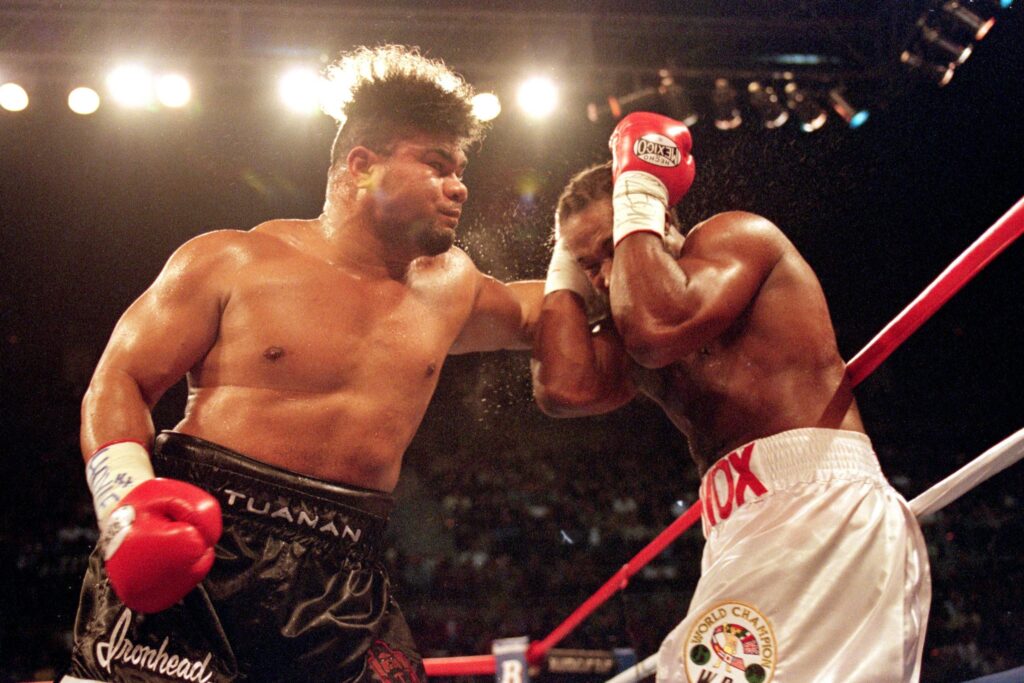
David Tua’s Knockout Legacy
The Power of the Left Hook
David Tua’s name became synonymous with one of the most feared weapons in heavyweight boxing: his left hook. This devastating punch set him apart from his contemporaries, earning him a reputation as a knockout artist par excellence. The power behind Tua’s left hook wasn’t just in its sheer force but in its speed and timing, catching opponents off guard and often ending fights decisively. His ability to deliver this punch, coupled with his compact stature and incredible durability, made him a formidable force in the ring. Tua’s technique, honed through years of rigorous training and bouts, demonstrated the lethal combination of natural power and meticulous skill development.
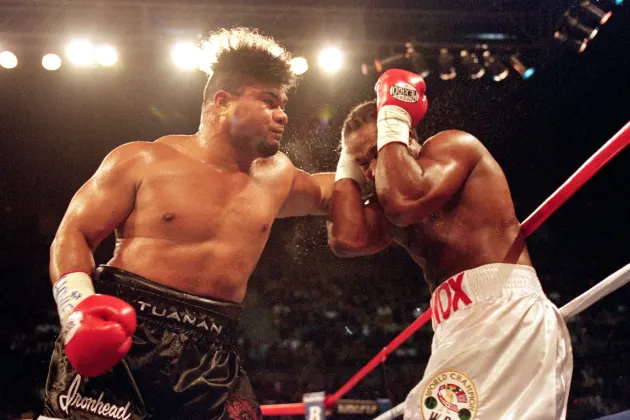
Memorable Knockouts in the Ring
David Tua’s career is highlighted by a series of knockout victories with the best heavyweights of his era that not only entertained boxing fans but also cemented his status as one of the most powerful punchers in the sport’s history.
Vs. John Ruiz (1996): Perhaps the most iconic knockout of Tua’s career came against John Ruiz, whom he floored in the first round in just 19 seconds. This fight showcased Tua’s explosive power and set the stage for his ascent in heavyweight boxing.
Vs. Michael Moorer (2002): Tua’s knockout of former heavyweight champion Michael Moorer was a testament to his enduring power, even as he navigated the ups and downs of his career. The first-round knockout, delivered with a vicious left hook, underscored Tua’s status as a knockout specialist.
Vs. Shane Cameron (2009): In a highly anticipated bout, Tua demonstrated that his power was as formidable as ever by knocking out Shane Cameron in the second round. This victory, achieved with a series of powerful punches culminating in a decisive left hook, was a reminder of Tua’s knockout capabilities and a highlight of his later career.
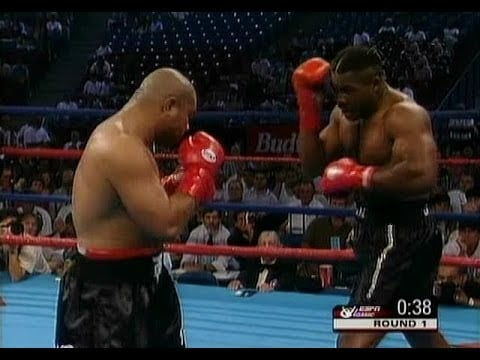
Vs. Ike Ibeabuchi (1997)
The match between David Tua and Ike Ibeabuchi on June 7, 1997, is often recalled as one of the most grueling and competitive heavyweight bouts of the era. In this epic encounter, Ike Ibeabuchi won in a unanimous decision after 12 rounds of intense and relentless fighting, a verdict that was both celebrated and contested. Ibeabuchi’s victory over Tua was a significant milestone in his career, showcasing his durability and skill in the ring. David Tua would consistently turn in world-championship performances even in losses, including his 1997 clash with Ike Ibeabuchi, which set a record for the most punches thrown in a heavyweight bout. Regarded as a cult classic by boxing fans and historians, the bout would still not be enough to be Fight of the Year, as that accolade would go to the bout between Arturo Gatti and Gabriel Ruelas.
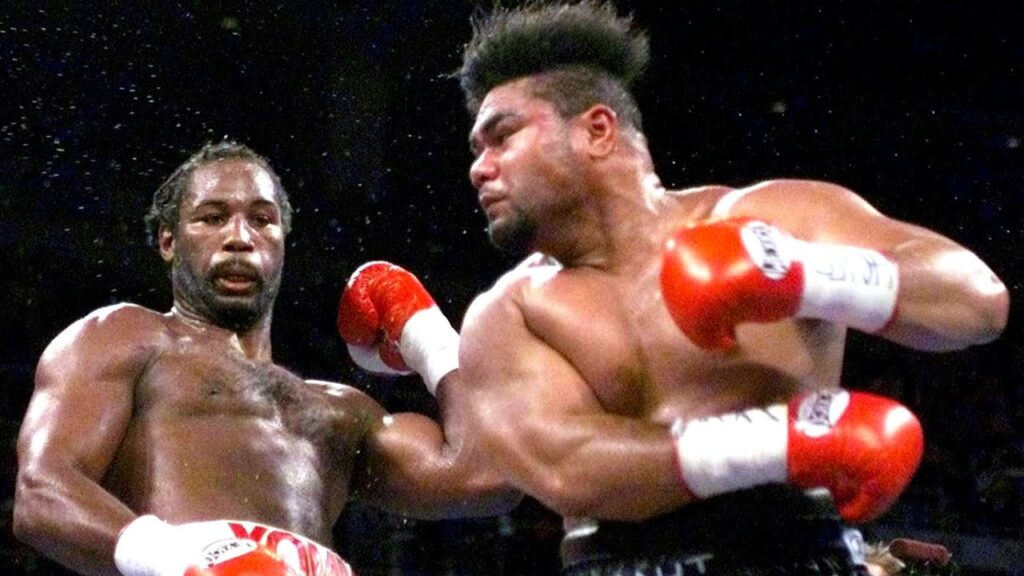
The Fight of the Millennium: Tua vs. Lewis
The Buildup to the Bout
The heavyweight bout between David Tua and Lennox Lewis on November 11, 2000, was a highly anticipated event in the boxing world, with the WBC, IBF, and IBO world titles on the line. Billed as “Royal Rampage,” it was contested for these heavyweight world titles at the Mandalay Bay in Paradise, Nevada. This fight was poised to be Tua’s only major world title championship fight, marking a pinnacle moment in his career. Lennox Lewis, the reigning Undisputed Heavyweight Champion, had successfully defended his world title against Michael Grant and Francois Botha. Tua entered the ring with an impressive 37–1 record, with notable victories over future heavyweight champions, despite being the underdog. The anticipation built around Tua’s power and Lewis’s recent world title performances, setting the stage for a clash of titans. However, Tua ultimately lost the bout.
Battle Against a Champion: The Fight Recap
The fight extended the full 12 rounds, differing from Lewis’s recent quick victories. Early in the bout, Lewis delivered a right hook that cracked one of Tua’s ribs, yet he couldn’t secure a knockdown. Lewis dominated most of the fight, significantly outpunching Tua, landing 300 of his 674 punches compared to Tua’s 110 out of 413. The judges’ scores were decisively in favor of Lewis, marking the bout as a unanimous decision victory for him (119–109, 118–110, 117–111). This match showcased Lewis’s boxing skill and control, maintaining the upper hand against Tua’s known knockout power
Following the fight, Lewis expressed his interest in fighting Mike Tyson, aiming to cement his status as the best heavyweight boxer. The bout represented a high point in Lewis’s career and a significant moment for Tua, despite the loss. For Tua, the fight against Lewis was the pinnacle of his championship pursuits, showcasing his resilience and power even in defeat. The aftermath for both fighters involved pursuing further bouts, with Lewis eyeing a match against Tyson and Tua continuing to fight for recognition within the heavyweight division
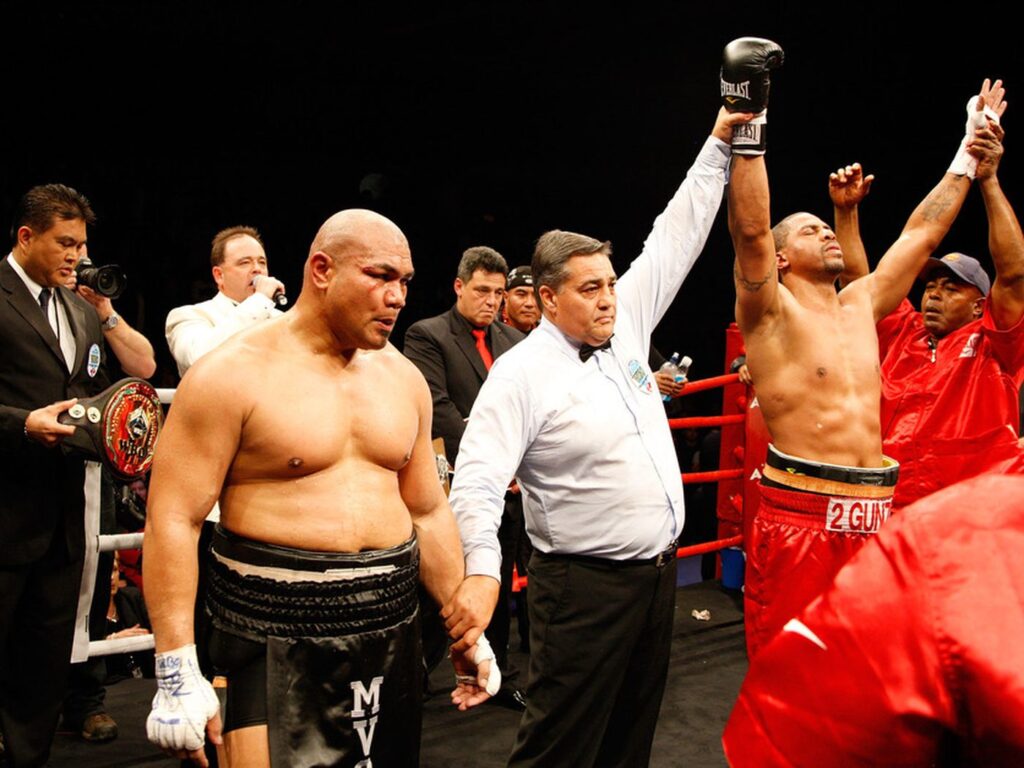
The Comeback Trail
David Tua, renowned for his power in the heavyweight boxing division, embarked on a notable comeback trail, marking his return to the ring with significant fights and victories that further solidified his legacy in boxing.
Returning to the Ring
After a period of inactivity, David Tua made a powerful return to boxing on March 31, 2005, when he defeated Talmadge Griffis in a 10-round bout, showcasing his still formidable power by ending the match with a TKO victory with just 26 seconds remaining. This victory marked the beginning of Tua’s resurgence, as he once again demonstrated the skill and power that had made him a formidable contender in the heavyweight division
Notable Fights and Victories
Following his return, Tua continued to rack up victories, including a decisive win over Edward Gutierrez by knockout in the fourth round on July 26, 2006, and a seventh-round knockout victory over Maurice Wheeler in November 2006. Each of these wins emphasized Tua’s knockout power, particularly his famous left hook, which remained a significant threat to his opponents.
David Tua’s bout against Hasim Rahman stands out as a monumental clash. On December 19, 1998, Tua faced Hasim Rahman in a fight that would be remembered for its sheer intensity and dramatic conclusion. Hasim Rahman, a formidable opponent with a solid track record, was expected to be a tough challenge for Tua. The fight lived up to its billing, showcasing Tua’s devastating power and Rahman’s resilience. In the ninth round, Tua unleashed a barrage of punches that eventually overwhelmed Rahman, leading to a technical knockout. This victory not only solidified David Tua’s status as a heavyweight contender but also highlighted the ferocious rivalry between him and Hasim Rahman.
In 2009, Tua’s comeback trail reached a high point when he knocked out fellow New Zealander Shane Cameron just seven seconds into the second round on October 3, securing the WBO Asia Pacific and Oriental Heavyweight titles. This victory was a clear demonstration of Tua’s enduring power and resilience in the ring. He followed this up with a points win over Friday Ahunanya on March 31, 2010, showcasing his ability to dominate opponents over the distance as well as by knockout
However, Tua’s comeback faced challenges, notably in his rematch against Monte Barrett on August 13, 2011, which resulted in a unanimous decision loss. Despite this setback, Tua’s comebacks and the victories he amassed during this period reaffirmed his status as one of the most powerful and respected heavyweight boxers of his era.
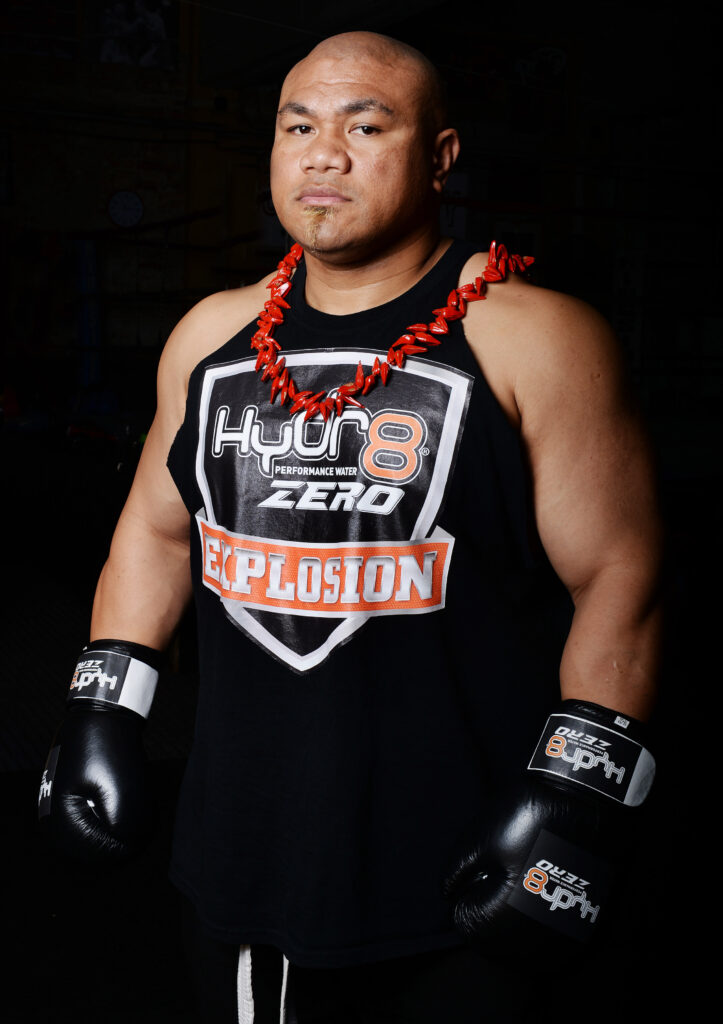
David Tua, Press Conference ahead of the Ausgust 31st boxing bout between David Tua and Alexander Ustinov. Duco Events offices, Auckland City. 5 August 2013. Photo: Andrew Cornaga/photosport.co.nz SUN 11Aug13 – David Tua seems in a good headspace after being reunited with trainer Lee Parore. PHOTOSPORT SUN 11Aug13 – David Tua seems in a good headspace after being reunited with trainer Lee Parore. PHOTOSPORT SUN 11Aug13 – David Tua seems in a good headspace after being reunited with trainer Lee Parore. PHOTOSPORT
Preparing for Battle: Tua’s Training Approach
David Tua’s training would have been multifaceted, focusing on developing strength, speed, and endurance—key attributes for a knockout artist in the heavyweight division. His preparation for fights likely included a combination of heavy bag work, sparring, and mitt work to hone his punching power and accuracy, especially his signature left hook. Conditioning work, including running for cardiovascular health and agility drills, would have been essential to maintain his stamina over the course of a fight
Nutrition Strategies for Peak Performance
For a heavyweight boxer like Tua, nutrition would play a crucial role in maintaining muscle mass, ensuring recovery, and managing weight. While specific details of Tua’s diet are not publicly detailed, it’s reasonable to infer that his nutritional approach would include a balanced intake of proteins for muscle repair, carbohydrates for energy, and fats for hormonal health. Hydration, vitamins, and minerals would also be crucial to support intense training sessions and recovery. Supplements might be used to support overall health, performance, and recovery processes.
In summary, David Tua’s approach to training and nutrition was undoubtedly tailored to support the demands of his powerful boxing style and the challenges of the heavyweight division. While the specifics of his regime might not be fully detailed in public sources, the principles guiding his preparation would align with the best practices for elite athletes in combat sports
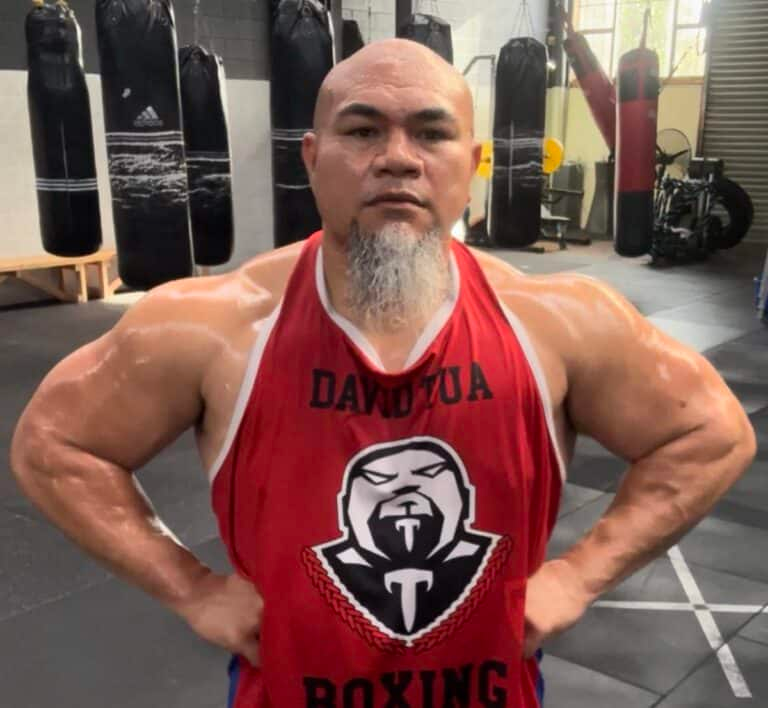
FAQs About David Tua
David Tua, known as “The Tuamanator,” is a figure whose impact on the boxing world continues to be felt long after his time in the ring. His journey from a young talent in Samoa to a heavyweight contender on the world stage is a compelling story of resilience, power, and the pursuit of greatness. These FAQs delve into the essence of David Tua’s boxing career, offering insights into the man behind the explosive power and the legacy he’s left behind.
What was the most significant fight David Tua lost? One of the most significant fights David Tua lost was against Lennox Lewis in 2000 for the undisputed heavyweight championship. This bout was highly anticipated and remains a defining moment in Tua’s career, highlighting the level of competition he faced
What made David Tua’s fighting style so feared in the heavyweight division? David Tua’s fighting style was characterized by his exceptional power, especially his left hook, which is considered one of the most devastating punches in the history of heavyweight boxing. His ability to close distances quickly and unleash powerful combinations made him a formidable opponent for anyone in the ring.
How did David Tua begin his boxing career, and what were his major influences? Tua’s boxing career began in his homeland of Samoa before moving to New Zealand, where he honed his skills and quickly made a name for himself. His major influences included his family’s support, his natural athletic prowess, and early mentors who recognized his potential in the sport.
What are some of David Tua’s most memorable fights and achievements in boxing? Among Tua’s most memorable fights were his bouts against Michael Moorer, John Ruiz, which showcased his knockout power with a victory in the first round, and his title fight against Lennox Lewis. Although Tua did not win the title, his performances against top-tier opponents solidified his status as a top contender in the heavyweight division.
How has David Tua contributed to the sport of boxing beyond his achievements in the ring? Beyond his achievements in the ring, David Tua has contributed to the sport of boxing through his work with young boxers, promoting the sport in New Zealand and Samoa, and being an advocate for the well-being of retired athletes. His journey from a small island nation to the global stage has inspired countless individuals.
What does David Tua consider the key elements to success in boxing? Tua often speaks of discipline, perseverance, and the importance of mental toughness as key elements to success in boxing. He emphasizes the need for relentless training, focus, and the ability to overcome adversity, both inside and outside the ring.
How has David Tua’s legacy influenced future generations of boxers? David Tua’s legacy has had a profound influence on future generations, especially in the Pacific Islands and New Zealand, by showing that with determination and hard work, it is possible to achieve greatness on the world stage. His career is a testament to the power of resilience and the impact of leaving an enduring legacy in the sport of boxing.
. How many KO victories did David Tua achieve in his career? David Tua secured numerous victories by knockout (KO), establishing himself as one of the hardest hitters in the heavyweight division. His record boasts an impressive count of KO wins, highlighting his power and finishing ability in the ring.
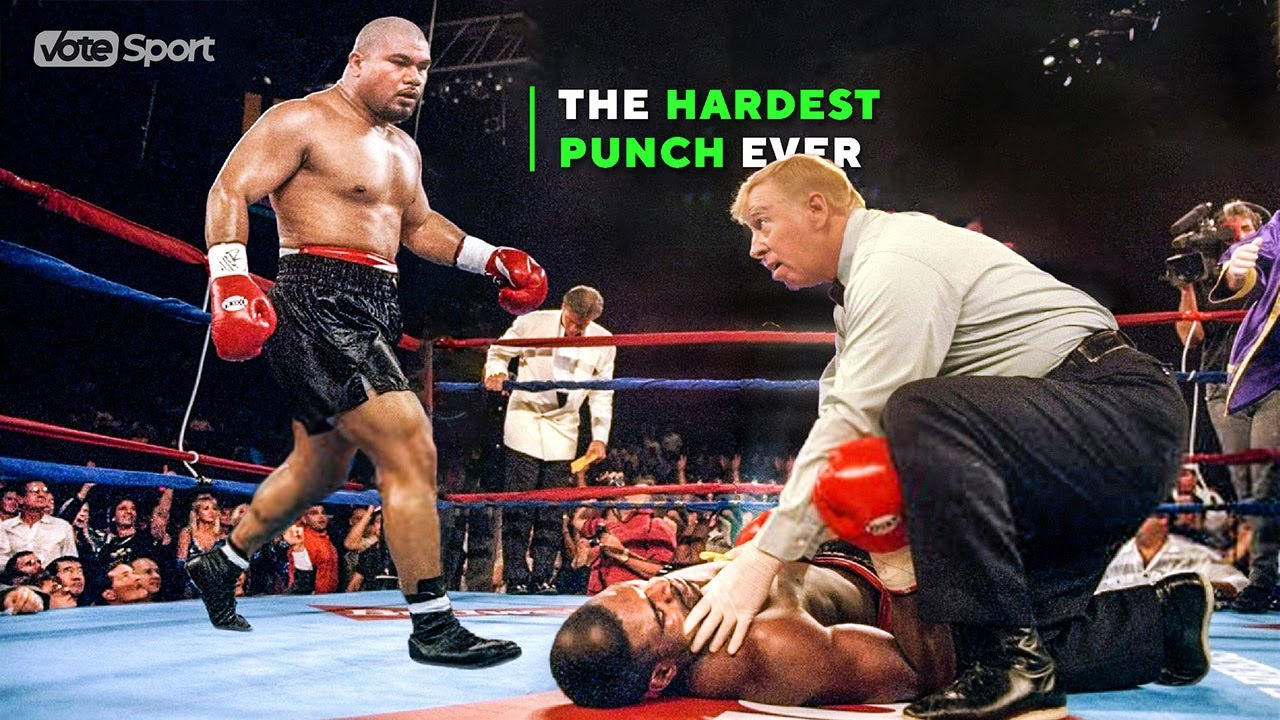
. What is David Tua’s most famous technique? Tua’s most renowned technique is his devastating left hook. This powerful punch led to many of his KO victories and is considered one of the most formidable left hooks in boxing history.
. How many times has Tua won fights by TKO? David Tua has won several fights by technical knockout (TKO) in his professional career, showcasing his ability to dominate opponents to the extent that referees had to stop the fights, thus earning him TKO victories.
. Did Tua’s left hooks lead to many of his wins? Yes, many of Tua’s victories were directly attributed to his powerful left hook. These punches, often leading to either KO or TKO outcomes, were a key element of his success and feared by his opponents.
. What makes Tua’s KO record stand out? Tua’s KO record is notable for the sheer number of knockouts and the quality of opponents he defeated. His ability to end fights abruptly with his powerful hooks and aggressive style made his KO victories a significant aspect of his boxing legacy.